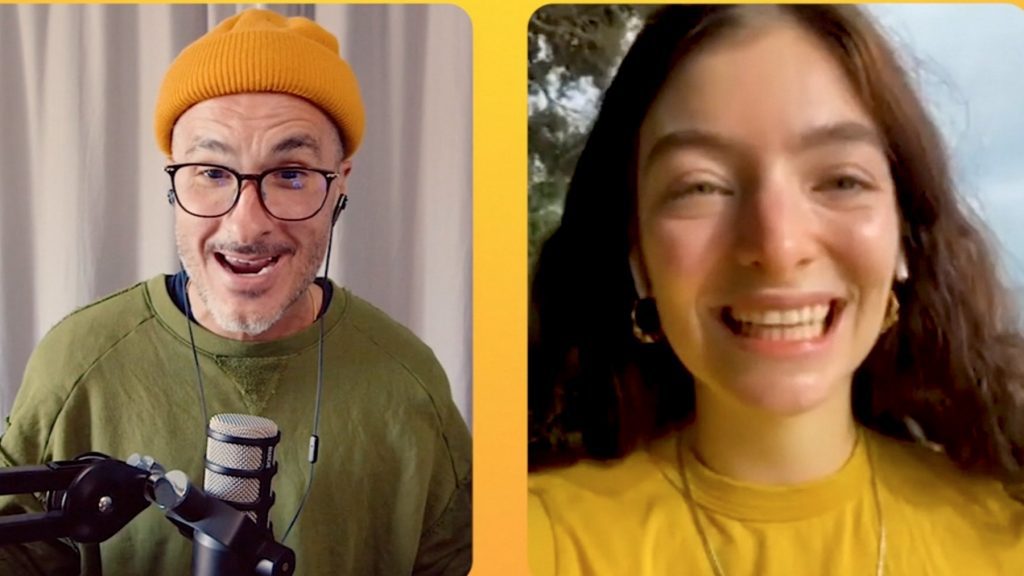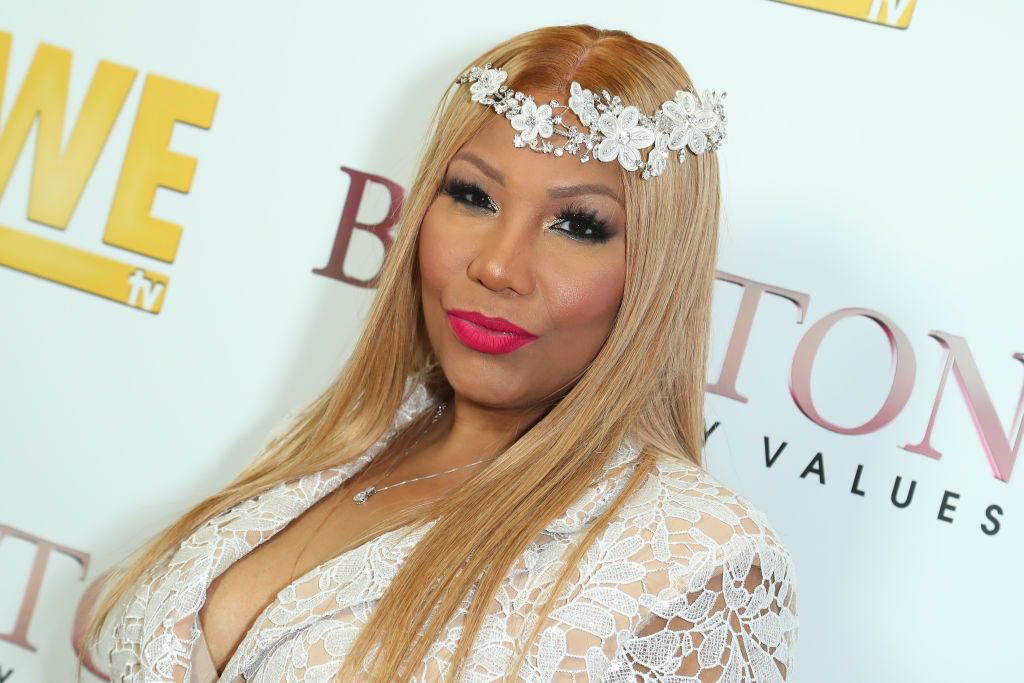
Liz Phair Is Still Searching
When Liz Phair released Soberish this June, it ended an 11-year hiatus between studio albums. “It’s weird to come back and participate in the promotional cycle, and have the business changed so much,” says the songwriter, 54. “And then adding Covid to that has been . . . the word ‘zany’ just came to mind.”
She’d hardly been vacationing in the decade since 2010’s Funstyle, though. In just the past few years, she’s put out a massive box-set reissue of her classic 1993 debut, Exile in Guyville; published her memoir, Horror Stories; and continued her work as a television composer. Those experiences and more informed her writing on Soberish, which sees her contemplating how to take the edge off of life while staying ahead of the curve.
Phair called to talk about the new LP, why she relates to Britney Spears, and coping with tumultuous times.
With this album, you’re working again with Brad Wood, who co-produced Exile in Guyville, for the first time since the Nineties. How did you decide to team up with him again?
blogherads.adq.push(function () {
blogherads
.defineSlot( ‘medrec’, ‘gpt-dsk-tab-article-inbody1-uid0’ )
.setTargeting( ‘pos’, [“mid-article”,”mid”,”in-article1″,”mid-article1″] )
.setSubAdUnitPath(“music//article//inbody1”)
.addSize([[300,250],[620,350],[2,2],[3,3],[2,4],[4,2]])
;
});
It was honestly the [Guyville] reissue. When it came out in 2018, it had been in the works for three years. It was batted around as an idea, and then to find all the old cassettes, the Girly-Sound stuff — that was not easy. Matador would call me up every once in a while and be like, “Do you have any of those tapes? Do you know anyone that might have them in their storage locker?” I think Chris Brokaw went and opened up this storage facility and was digging through, looking for stuff. We got some from Tae Won Yu, who was the first person that I ever gave those tapes to, so he had copies of that.
All these different people got to say how it was for them to experience it, which I tried to do in my documentary [in 2008], Guyville Redux. I tried to stick my phones in the faces of guys who hadn’t been a fan of that record and be like, “Come on, Steve Albini, give me a chance.” …
So [I was] just immersing myself in that environment, and it turned out so well, that box set. We put the past in a perfect package. And I felt like I connected to that Liz Phair again. I missed that time, and I missed the experience of someone like Brad, who lets me be as weird as I actually am.
Did you ever get Steve Albini and those other guys to retract their opinions on Guyville, or admit to changing their minds?
He did, kind of. I was trying to get him to say bad things. But he wouldn’t, because, if I can recall correctly, he said that record “meant a lot to women.” So I think he’d kind of come around. Some women in his life had pointed out that that record was important for a different reason, that there was a third path to look at that work.
His criticisms of me at the time weren’t entirely off base. I was looking to be more ambitious commercially than a lot of people in that area were, and the mismatch came from the fact that even though I was in that neighborhood, I was not a committed person to this scene as much as I was someone traveling through. I think that was part of what was off-putting to people at the time.
Do you think people are more forgiving towards artists who are more transparent about wanting to be commercially successful now than they were in 1993, or even in 2003, when you put out your self-titled album?
I think they’re more supportive of a variety of positions. And I think that’s healthy, because it always struck me as really weird to say you’re opposed to mainstream oppressiveness, and then to be oppressive in your own niche area. You’ve just substituted one oppression for another. The gatekeeper mentality of indie rock back then — that seemed like another 1950s to me. All these guys and dudes telling you what was cool and what wasn’t cool. It just felt like another form of non-freedom to me. That’s what Guyville sort of meant to me: Sure, you’re not mainstream, but you’re telling us what’s good and what’s not. And we don’t have a say.
Soberish is a very different album from Guyville, but I can hear Brad’s drum loops and that distinctive Liz Phair guitar. Did you want to highlight those classic sounds?
blogherads.adq.push(function () {
blogherads
.defineSlot( ‘medrec’, ‘gpt-dsk-tab-article-inbody2-uid1’ )
.setTargeting( ‘pos’, [“mid-article2″,”mid”,”in-article2″,”mid-article”] )
.setSubAdUnitPath(“music//article//inbody2”)
.addSize([[300,250],[300,251],[620,350],[2,4],[4,2],[3,3]])
.setLazyLoadMultiplier(2)
;
});
Yeah, we wanted to use the sounds of Guyville — like, the exact sounds with the exact plug-ins. Brad loves that. He’d be calling me up like, “I’ve got the drum setup, and this is exactly what we did before!” He loves that archivist mentality, he loves the past, and he remembers all the equipment. So the idea was — and this is my idea, I should just say — take the sounds of the past, and put ourselves in the stance where we’re pushing into something unknown, even to us. We’re using the alphabet, if you will, that’s familiar, but we’re writing new prose.
Because to me, when people say, “I wish you would do another Guyville” . . . what Guyville actually felt like, when I was making it, was searching for something. Like, we were surprised by what we got. We were on an unsure footing. We were pushing into the new ourselves. So I wanted us to be on that unsure footing for this one.
There’s a lyrical thread on Soberish that’s about safety and protection. I noticed it most on “Ba Ba Ba,” which is my favorite song on the record. What drew you to those themes?
I feel that tension in my life all the time. I want freedom and I want experimentation before I need security. Especially in the last four years, in the climate that we’ve been in politically, that was amplified. I love that you like “Ba Ba Ba” — that’s my favorite song on the record, too. I had Brad speed up the tempo as it goes, like your heartbeat when you’re excited that you’re going to be with someone. I think of that song as a perfect bifurcation of the sides of me. There’s the first part, when I’m with someone new, in a new relationship, and you’re almost your ambassador self, where you’re not too complicated. You know that’s what the person wants — this uncomplicated, pretty girl — and you enjoy playing that. It’s almost like you’ve been given a movie role at the beginning of a romance. You get to be that movie side of yourself that you think you could be, but you never actually can maintain.
And then by the end of the song, I’ve already lost that relationship! It’s like the real Liz is back out again, and the real Liz is like, “Jesus fucking Christ.” I love that that song shows us two sides of the person that wants to be liked, and wants to be uncomplicated and unproblematic. Then you get back into yourself, and you’re like, “God dammit, I can never escape.” So there is a sense, I think, especially with my relationships with men, where I want the powers of freedom — to be an empowered woman and a strong woman. But I crave and deeply miss having the security, probably of the patriarchy in a way. Set roles, defined things. I’ve chosen freedom in my life, but I miss security. I don’t think the world has evolved enough to make the path I’ve chosen smooth.
blogherads.adq.push(function () {
blogherads
.defineSlot( ‘medrec’, ‘gpt-dsk-tab-inbodyX-uid2’ )
.setTargeting( ‘pos’, [“mid”,”mid-articleX”,”in-articleX”,”mid-article”] )
.setSubAdUnitPath(“music//article//inbodyX”)
.addSize([[300,250],[300,251],[3,3],[620,350]])
.setLazyLoadMultiplier(2)
;
});
What’s different in writing about these vulnerabilities in your early fifties, as opposed to your early twenties?
It gets more complicated. You’re not able to define things as clearly anymore. You’ve seen so many examples of gray areas that your expertise, if you will, is parsing the grays. Rather than, when I was younger, I felt like, “Fuck you, you’re wrong, fuck off,” or, “This is the best thing that’s ever happened to me. I’m doing this forever. I’ve found my solution.” That doesn’t exist for me anymore. Everything in my life is a shade of gray or complexity. “You’re kind of a dick, but I understand why you’re that way. And I’m kind of a dick, too.” There’s just a sense of moving in a different, more holistic, emotional realm. And being able to accuse or totally surrender. I’m playing with the plastic of the complex, I guess.
I thought about that with the song “Hey Lou.” You’re describing a guy who sounds like a character from Guyville, like a total asshole, but you’re almost treating him with more sympathy than that. Did you see that song as a sign of maturity for yourself as a songwriter?
I mean, I definitely see it from an older person’s point of view. It’s occurred to me now that if you want a long-lasting relationship, you’re going to have to put up with stuff, and you’re going to have to let roll off your shoulder stuff that when you were younger, you’d be like, “I’m out.” I do still dream about long relationships — even though it’s very unlikely that that’s gonna happen to me, I still think about it. I sort of study relationships. Laurie Anderson and Lou Reed is something that I hold up as: I wish I could have that. I wish I could have someone who’s also a strong artist, where somehow we magically have a really nice relationship. It seems unlikely, but they managed it! So there’s a fascination with that, but also an understanding that there’s no way that went totally smoothly [laughs].
Is the song based entirely off of Lou Reed, or is there anyone personal you know in the mix?
blogherads.adq.push(function () {
blogherads
.defineSlot( ‘medrec’, ‘gpt-dsk-tab-inbodyX-uid3’ )
.setTargeting( ‘pos’, [“mid”,”mid-articleX”,”in-articleX”,”mid-article”] )
.setSubAdUnitPath(“music//article//inbodyX”)
.addSize([[300,250],[300,251],[3,3],[620,350]])
.setLazyLoadMultiplier(2)
;
});
I definitely projected personal experiences. When I’ve had long relationships, the person I become to accommodate the person I’m with — I was writing from that person. The first half of Soberish to me is about the ending of a long relationship, and something that is so complex and so entwined that it’s hard to pull apart. And then the second half of the album is when I’m dating new people, and trying out different fits romantically. And then I guess, with “Lonely Street” … At that point, after you date other people, sometimes you are more forgiving to your ex, and you think back on them fondly. So “Lonely Street” is sort of that moment in the second half of the album, where I’m like, “I wish that it just worked out with us. These guys, they’re a mixed bag. I’m enjoying it, but I kind of just wish that old thing had worked out. Then “Dosage,” “Bad Kitty,” and “Rain Scene,” I’m back to single. There’s a whole different me that’s like, “Fuck it, I’m Liz Phair again, okay, whatever. Now I’m back.” So that’s the emotional arc it takes for me. Maybe I shouldn’t say that, because then someone else isn’t going to get to feel their story in it. But that’s the story I’m telling.
What does the album title Soberish mean to you?
It originally just meant, literally, “soberish” — trying to stay connected and grounded, but also, finding reality so intense that I need to take the edge off. It has a literal meaning to me, especially because they legalized marijuana in California in 2016. That was always my favorite drug, but because it was illegal, I kind of kept it in place. Once it was legal, I was like, “Well, fuck!” I had to go through a second puberty. I could not instantly integrate it into my life in a normal manner. So that was on the brain: “What is too much? What is a healthy lifestyle? Why do I crave escapism so much?” And with Trump . . . Jesus, you know, that was hard, too. You had reality that was more than we could bear.
But when I made it the album title, I expanded its definition. I incorporated any way that we can escape reality. That can be from working too much — like, you can escape your private life by working all the time, and feeling like you’ve got all these people that are meeting you, but do you have any real personal life? That can be eating too much. That can be anything that you do that lets you get out of reality. I like that street sign [on the cover art]. I was charged by my label head to come up with that. She was talking about Pink Floyd’s album [The Dark Side of the Moon] and how the prism, the way the light goes in and then refracts in a rainbow — that says something. It’s not on the nose, it’s just a good symbol for what they’ve done with music on that record. They’ve taken what you expect, and then they’ve expanded it into this range of soundscapes.
So I thought, what does this album symbolize? And for me right now, with the street sign, if you picture one street as “sober,” and one street as that “ish” side of myself, I’m trying to hold onto that street corner. I’m flipping between my sober self, and then my “ish” self, and back and forth. I’m kind of on a street corner in my life, not able to stay on one or the other, and yet feeling there’s something familiar about that perspective shift. It’s almost like sleep and wake, sleep and wake. Whenever I get into my “ish” side, I feel like I recognize myself: “Oh, there I am again.” So it became a broader discussion of how we get through our lives in a way that it’s functional, but gives you relief – makes you able to dream, makes you able to believe in some kind of magic, or gives you that romance in life that may or may not actually be there. It may just be coming from you.
Do you feel like you’ve found the balance between “sober” and “ish”? Or are you still going through that second puberty?
blogherads.adq.push(function () {
blogherads
.defineSlot( ‘medrec’, ‘gpt-dsk-tab-inbodyX-uid4’ )
.setTargeting( ‘pos’, [“mid”,”mid-articleX”,”in-articleX”,”mid-article”] )
.setSubAdUnitPath(“music//article//inbodyX”)
.addSize([[300,250],[300,251],[3,3],[620,350]])
.setLazyLoadMultiplier(2)
;
});
I mean, it’s better! [Laughs.] It helped that Trump was not re-elected. There were things going on in my life that just were so intense, and I felt them all. I felt them too much. I’m happy with where I landed. I feel like I’m in a pretty good space. But you tell me that I have to do XYZ coming up in the next two weeks, and that part of me — the “ish” — is gonna come up.
Did you ever see that Hitchhiker’s Guide to the Galaxy movie? There’s this part where Sam Rockwell’s character, the President of the Galaxy….To be able to do that job, he had to carve out the unpleasant or difficult sides of himself, so he has a second head that will pop up when he gets anxious. I consider that the “ish.” He’s got this perfectly fine face, and then if he gets angry…augh! His second head pops out! And I relate to that. That’s Soberish to me. You’re mostly totally good and great, and then augh!
“Good Side” is kind of about that, right? That song could easily be about a relationship, but in your context, it’s almost like you want people to remember the good parts of your legacy. And that was the first single, too – I’m wondering why it was important for that to be the first glimpse of the album.
I felt like “Good Side” was a good “hello” handshake for the record. It showed where we were going musically. It also had that Liz Phair funniness, like the opening line: “There’s so many ways to fuck up a life.” I’m doing that Liz Phair thing where I just hit you right out of the gate. It’s the same way I put a really intense story as the first one in Horror Stories — I shock you really quick at first, and then it’s just like, no, it’s gonna be OK. It just felt like a handshake song. Like, “Welcome to the record.”
What’s up with the rain motif on the album? Like on “Sheridan Road” and the outro at the end.
blogherads.adq.push(function () {
blogherads
.defineSlot( ‘medrec’, ‘gpt-dsk-tab-inbodyX-uid5’ )
.setTargeting( ‘pos’, [“mid”,”mid-articleX”,”in-articleX”,”mid-article”] )
.setSubAdUnitPath(“music//article//inbodyX”)
.addSize([[300,250],[300,251],[3,3],[620,350]])
.setLazyLoadMultiplier(2)
;
});
I connect to water a lot when I think about love. I know that that’s an old dream trope, water and sexuality, but I really do feel that water symbolizes the side of myself that I would like to be the most and can’t always stay in touch with. The sensual, more feminine, more surrendering … a cloudbreak, to me. I struggle a lot. I struggle to get ahead of my career, I struggle to stay ahead in my life — I struggle all the time to surf the wave of life, if you will. And yet, I think I might feel my best when I’m actually not striving. I feel my best when I’m kind of surrendering. I get that protection thing that you were talking about earlier. The desire for protection is the desire for surrender, to not be striving and not be struggling and not be trying. Not even try! Sometimes I think I make myself unhappy by trying.
There was so much attention placed on you right out of the gate with your first album. Do you feel like you can relax and have more creative freedom now?
I feel that a little bit. A couple of these records … Like, Somebody’s Miracle [in 2005] was difficult behind-the-scenes to get that done. There were two different producers, one of whom I was involved with, and that was just a difficult record. I didn’t end up running that one.
On this one, I do feel like I had total creative control over the music, but when it comes to the selling part of the record, I don’t feel like I have that much control [laughs]. Creative control, that’s a loaded word for me. There’s something about the business in America, in our capitalist economy. The horses get out in front of you, and you’re like, “Wait, wait!” And you’re just fucking going in the wagon behind it. The gears of business, how to sell things…. I never feel like I have much control over that.
What’s the biggest difference in releasing an album now compared with 2010?
The increased attention on social media. When people are saying, “Do you have any ideas for TikTok?” it’s really bizarre to me. I can’t put a value judgment on it, because it is what it is, and the industry changes. It just does. But the social media thing feels not really about the music. I’m not sure if I’m selling the music or if I’m just selling me. And maybe that’s my own hang up.
blogherads.adq.push(function () {
blogherads
.defineSlot( ‘medrec’, ‘gpt-dsk-tab-inbodyX-uid6’ )
.setTargeting( ‘pos’, [“mid”,”mid-articleX”,”in-articleX”,”mid-article”] )
.setSubAdUnitPath(“music//article//inbodyX”)
.addSize([[300,250],[300,251],[3,3],[620,350]])
.setLazyLoadMultiplier(2)
;
});
I remember reading one interview where you said your manager had booked two months’ worth of shows for you, and you didn’t find out until way later. Does that still happen to you?
[Laughs.] No, but little things like that do still happen. Like, just one week ago, I was like, “I didn’t approve this. What is this?” I was just talking to my son about this last night. We were talking about what kind of economy we think we’re going to evolve into. And I was saying, I would like to move into an economy where I can sell to less people, and give them what they want, and still make a living enough for me to have an income, rather than trying to cover the entire territory of people. I like that idea. I like the boutique, niche economy, and I hope to move into that more.
The documentary Framing Britney Spears has spurred conversations about how she was perceived and sexualized by the media. Did you see any similarities between you and her in that regard?
I did. That was a hard documentary to watch. It reminded me of being in the center of my 2003 eponymous album, very much. I felt those pressures at a lower level — she was obviously far more famous and successful — but if you scale it down, it’s the same feeling. I put Guyville out, and it had racy songs on it, but suddenly I was just the “blowjob queen” everywhere. Every photo shoot after that would try to get me progressively more naked. And I didn’t even have a manager. It felt like that was the only thing they cared about, for a while. At a certain point, it pushed me to say, “If we’re going to use my sexuality, I’m going to author it. I’m going to be the subject, not the object.”
I see that in her. I see that empowerment, of liking her body and feeling fit and strong and sexy, and being a young woman wanting to own her own sexuality, just like a man in music. And yet having that used against her in the very same instance to shame her and disempower her and threaten her, in a way. It was a real point in our cultural moment, where women’s sexuality was on the table. I don’t know if you remember, like seven or eight years ago or something, young women started just exposing… It was like, Free the Breasts or something?
Free the Nipple.
Free the Nipple! I get that, because you have to wade into these really dangerous waters, kind of like the way tsunamis have junk in them and sharp edges underneath the surface. If women are going to own and embrace their own sexuality, while working in the marketplace, you’re going to hit this point where you don’t know if you’re enabling the bad stuff, or you’re actually stepping on top of the bad stuff. And I related so much to her, lost in the middle of that, because she just looked too young and too sexualized, but I understood the impulse to grab hold of that and be the writer. It’s just hard. That fact that she is still under conservatorship sickens me. I can’t even think of an analogy for a male artist of that caliber. Can you imagine any male artist being controlled for 10 years by his mother? Imagine if Justin Bieber, for 10 years, had his mother control his finances. Is that even possible? Can you even imagine that? That’s what’s happened. It’s sick.
blogherads.adq.push(function () {
blogherads
.defineSlot( ‘medrec’, ‘gpt-dsk-tab-inbodyX-uid7’ )
.setTargeting( ‘pos’, [“mid”,”mid-articleX”,”in-articleX”,”mid-article”] )
.setSubAdUnitPath(“music//article//inbodyX”)
.addSize([[300,250],[300,251],[3,3],[620,350]])
.setLazyLoadMultiplier(2)
;
});
Do you think the fact that there are way more prominent female artists now, and a much wider variety of women in music, has made it at all easier than it was for you?
I don’t know how it is for them, but it certainly is appealing to me. It’s one of the reasons why I wanted to put out an original record again, was because I wanted to be part of it. I felt like it was now Girlville instead of Guyville. I’d always dreamed of that. I also feel a kinship with them. Even if their music is nothing like my music, being a woman in the industry gives you sort of a shorthand or a shared language or shared understanding. And I wanted to get back out. This was a time in my life where I was like, “Well, if this is what the industry is now, I want to be part of it.”
When you were doing your press tour for your memoir, Horror Stories, so many of the questions revolved around the #MeToo chapter with Ryan Adams. Were you expecting so much attention to be given to that?
Yes. I didn’t really want to write it. My editor was adamant that if I was going to do a book called Horror Stories, since these were such big horrors in my life, that I was going to have to include it. And I found it interesting…. The reason I went with that is because my own resistance to talking about it struck me as maybe a red flag. The fact that I don’t want to talk about those things or think about those things does seem like a cop-out, if you’re going to do horror stories. But it was the hardest chapter to write. I wrote it kind of angrily, as if I was being made to write it. I don’t like thinking about that stuff. They were hurtful, scary experiences. It makes me sad to think about how young I was and how wide-eyed I was, compared to what these people got away with, and the way they got to be.
The way I had to try to make music…. Why the fuck is it so hard to just make music? Why can’t we just fucking make music and put it out? Why do we have to go through so much stuff just to put music out in the world? It makes me sad to think about, and the fact that there was a predatory aspect of that, like, “Ah, pretty young things are coming through on the conveyor belt, I’m an executive,” you know, that kind of stuff is sickening. And it was enabled for so long. I also felt like I needed to back up the women who were coming out to say that about Ryan Adams. Part of me, in the chapter, I was like, “Do I have to talk about this? Like, I wasn’t involved with him.” But what they were saying resonated, and though it didn’t happen to me, I could see how that could have happened to them. So I felt like I had to back them up. I felt like I had to show up and say, “Yeah.”
blogherads.adq.push(function () {
blogherads
.defineSlot( ‘medrec’, ‘gpt-dsk-tab-inbodyX-uid8’ )
.setTargeting( ‘pos’, [“mid”,”mid-articleX”,”in-articleX”,”mid-article”] )
.setSubAdUnitPath(“music//article//inbodyX”)
.addSize([[300,250],[300,251],[3,3],[620,350]])
.setLazyLoadMultiplier(2)
;
});
And yet, at the same time, I had met so many worse monsters. I didn’t even include them all in that chapter. I had friends calling up like, “You didn’t even talk about that incident.” They didn’t even unearth all of them. There’s more. That was my career experience for a long time: navigating lecherous men who had power over me. That was normal. I hope that’s not the case for young women right now. I hope that young female artists are not experiencing that. I’m sure they’re experiencing some kind of bullshit. But I hope it’s not that.
Let’s talk about your work in television for the past few years. Have you found that to be fulfilling as an artist?
I mean, it’s better when the writing’s better in the show [laughs]. But I immediately fell in love with it. I can remember that moment perfectly clearly. I was just plinking out this really rudimentary melody on a piano while the show was on a big screen. It was my first try. It was my friend Mike Kelley’s show Swingtown, and I was with my partners, Doc [Dauer] and Evan [Frankfort]. So I’m looking at the screen watching the action, realizing that what I’m doing is supplying the emotion … .It turned out to be something. First of all, I watched a million movies. And second of all, it’s what I’ve been doing my work the whole time. I write emotions. I take some weird, small emotion in a conversation, and aggrandize it. I give it its own temple, to this one odd, little emotion that’s very human, very common, but is never really noticed. And that’s what I’m doing with composing. There’s a lot of bullshit that goes with it, too — notes, changes, boss changes, bad shows, good shows, showing up for meetings, taking notes, all that kind of stuff. But at its core, I’m supplying the emotion for a scene. And that’s what I do every time I write a song.
Do you keep up with television a lot, even outside of work?
blogherads.adq.push(function () {
blogherads
.defineSlot( ‘medrec’, ‘gpt-dsk-tab-inbodyX-uid9’ )
.setTargeting( ‘pos’, [“mid”,”mid-articleX”,”in-articleX”,”mid-article”] )
.setSubAdUnitPath(“music//article//inbodyX”)
.addSize([[300,250],[300,251],[3,3],[620,350]])
.setLazyLoadMultiplier(2)
;
});
I do watch some, but I tend to watch film more. And I have a very specific genre that’s my favorite. I call it “dress movies,” and I have come up with a great definition for it. First, it has to be set in a different time period to be a dress movie, rather than a rom-com or some other kind of genre. Second, it has to have socio-economic undertones — the “struggle of the day,” historically, that’s impacting these people’s lives.
Third, it has to have men behaving like men. I’m so revolted by rom-coms when the male characters are turned into, “Why sure, I’d love to hold your purse.” I’m 100 percent offended by that. I will yell, I will turn it off, I will shout around the house. I’m just as revolted as if they had excluded a woman. So [it needs] men behaving exactly like men. And then fourth – here’s the kicker, this is how you really know….an unnecessarily long shot of a dinner table. If those four things are not in there, it’s not a dress movie.
That is so specific, but it sounds like you’re describing the 2005 Pride & Prejudice.
Yes, but Bridgerton is not. Bridgerton is a soap opera set in the past. I could do a roundtable on this. I’m interested in women’s lives in the past, with enough romance to feel like escapism, but enough reality to be an interesting document of women’s lives. That’s the main appeal.
The last full song on your album, “Bad Kitty,” starts off very sexually explicit. It’s kind of jarring, because the rest of Soberish isn’t really like that. Are you making fun of your Guyville persona there?
blogherads.adq.push(function () {
blogherads
.defineSlot( ‘medrec’, ‘gpt-dsk-tab-inbodyX-uid10’ )
.setTargeting( ‘pos’, [“mid”,”mid-articleX”,”in-articleX”,”mid-article”] )
.setSubAdUnitPath(“music//article//inbodyX”)
.addSize([[300,250],[300,251],[3,3],[620,350]])
.setLazyLoadMultiplier(2)
;
});
There’s more in it than that, but yeah, that’s totally fair. I suffer with this daily, trying to be both the person that people will like, and the [feeling] of “No, I’m just myself again.” I mean, I know everybody goes through that, and every rom-com is built on that, but it actually causes me problems in my day-to-day life. I feel like Eloise: I’m crazy, wild, whatever, but I don’t want to be that. I want to be smooth and orderly.
So “Bad Kitty” is the end of the record, where I’ve tried hard to make these relationships work. And then I’m like, “Fuck it!” I’m back to myself. There’s nothing I can do about it. And yes, I’m doing that thing that I frequently do, which is walk with sexual swagger, because I believe in women doing that — I think it’s the only way to take the narrative back. But I know I’m doing it. I know it’s kind of funny.
I wrote the song in the Grand Canyon, when I was on a 10-day rafting trip with a bunch of great people in 2014. We stopped at this beautiful rock enclosure, with open air to the sun. We’re taking a break, everyone was in their couples lying on rocks, and we brought guitars. I was playing “My Pussy” — that’s what it was called back then. I guess I looked very small and young in my waterproof clothes. This other group walked through the canyon. They pulled aside our guide and were like, “Do her parents know she’s singing that?!”
Oh, my God.
I was like, “Yeah, no, they don’t. And they’re not going to” [laughs].




